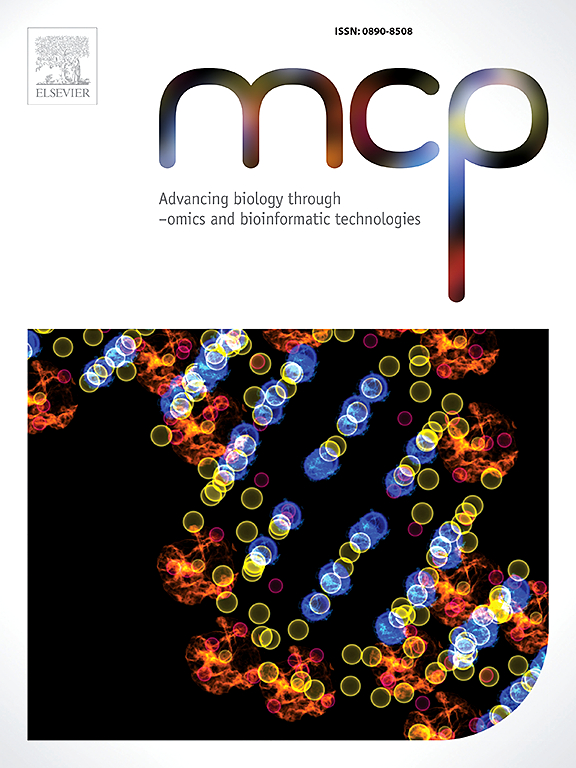LncRNA PVT1 promotes malignant progression by regulating the miR-7-5p/CDKL1 axis in oral squamous cell carcinoma
IF 2.3
3区 生物学
Q3 BIOCHEMICAL RESEARCH METHODS
引用次数: 0
Abstract
Oral squamous cell carcinoma (OSCC), one of the most common types of head and neck squamous cell carcinoma (HNSCC), is characterized by high incidence and mortality. PVT1 is a long non-coding RNA (lncRNA) that plays an oncogenic role in various cancer types. This study aims to reveal the role and underlying molecular mechanism of PVT1 in OSCC progression. The expression levels of PVT1, miR-7-5p, and CDKL1 mRNA were evaluated using qRT-PCR. Western blot and IHC analysis were conducted to determine the protein expression of CDKL1. The biological functions of PVT1, miR-7-5p, and CDKL1 in OSCC were investigated through CCK-8, transwell migration and invasion assays. In vivo experiments utilized a xenograft model to examine the impact of PVT1 on OSCC. Furthermore, the interaction among PVT1, miR-7-5p, and CDKL1 was explored using RNA pull down assay and luciferase reporter assays. We found that PVT1 enhanced cell proliferation, migration, and invasion by targeting CDKL1. In addition, PVT1 functions as a sponge to modulate miR-7-5p, thereby influencing the expression of CDKL1 and the progression of OSCC. In conclusion, this study illustrates that the "PVT1/miR-7-5p/CDKL1" pathway is capable of promoting the progression of OSCC and may serve as a promising target for developing treatment strategies for OSCC.
LncRNA PVT1通过调节miR-7-5p/CDKL1轴在口腔鳞状细胞癌中促进恶性进展。
口腔鳞状细胞癌(Oral squamous cell carcinoma, OSCC)是头颈部鳞状细胞癌(HNSCC)中最常见的类型之一,具有高发病率和高死亡率的特点。PVT1是一种长链非编码RNA (lncRNA),在多种癌症类型中发挥致癌作用。本研究旨在揭示PVT1在OSCC进展中的作用及其分子机制。采用qRT-PCR技术评估PVT1、miR-7-5p和CDKL1 mRNA的表达水平。Western blot和IHC检测CDKL1蛋白表达。通过CCK-8、跨井迁移和侵袭试验研究PVT1、miR-7-5p和CDKL1在OSCC中的生物学功能。体内实验采用异种移植模型来研究PVT1对OSCC的影响。此外,通过RNA拉下实验和荧光素酶报告基因检测,探讨了PVT1、miR-7-5p和CDKL1之间的相互作用。我们发现PVT1通过靶向CDKL1增强细胞增殖、迁移和侵袭。此外,PVT1作为海绵调节miR-7-5p,从而影响CDKL1的表达和OSCC的进展。总之,本研究表明,“PVT1/miR-7-5p/CDKL1”通路能够促进OSCC的进展,并可能作为制定OSCC治疗策略的有希望的靶点。
本文章由计算机程序翻译,如有差异,请以英文原文为准。
求助全文
约1分钟内获得全文
求助全文
来源期刊

Molecular and Cellular Probes
生物-生化研究方法
CiteScore
6.80
自引率
0.00%
发文量
52
审稿时长
16 days
期刊介绍:
MCP - Advancing biology through–omics and bioinformatic technologies wants to capture outcomes from the current revolution in molecular technologies and sciences. The journal has broadened its scope and embraces any high quality research papers, reviews and opinions in areas including, but not limited to, molecular biology, cell biology, biochemistry, immunology, physiology, epidemiology, ecology, virology, microbiology, parasitology, genetics, evolutionary biology, genomics (including metagenomics), bioinformatics, proteomics, metabolomics, glycomics, and lipidomics. Submissions with a technology-driven focus on understanding normal biological or disease processes as well as conceptual advances and paradigm shifts are particularly encouraged. The Editors welcome fundamental or applied research areas; pre-submission enquiries about advanced draft manuscripts are welcomed. Top quality research and manuscripts will be fast-tracked.
 求助内容:
求助内容: 应助结果提醒方式:
应助结果提醒方式:


